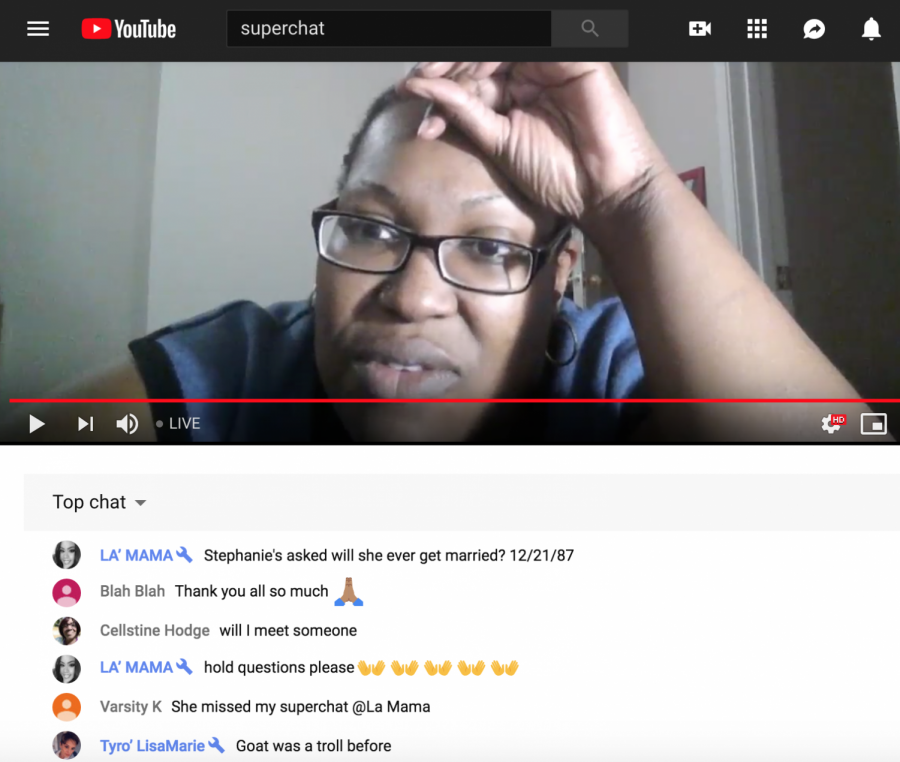YouTube Super Chat Gives Unwanted Extremists a Voice
By Kelly Christ
In January of 2017, YouTube launched Super Chat, a feature that allows content viewers to pay to have their comments displayed prominently during live streams on the site. While the content creators are obviously able to profit from this feature, YouTube collects 30% of the profits generated by Super Chats, according to The Wall Street Journal. This feature may seem positive because it allows creators and fans to have a stronger connection ,as well as increase revenue. However, the feature has unfortunately produced a louder voice for some of those on the darker sides of YouTube.
After the recent senseless act of violence in Pittsburgh that led to the deaths of 11 worshippers in a synagogue, the Super Chat feature showed just how frightening it can be when users pay to promote their comments: the Super Chats began to display incredibly disturbing anti-Semitic rhetoric.
The comments appeared on the live stream of a far-right YouTube creator whose channel was later permanently removed by YouTube. Super Chat amplifies not only specific comments, but an underlying current of hatred that pervades YouTube’s content.
The debate as to whether the freedom of speech should protect hate speech is one that has been magnified in today’s political climate. Super Chat was intended to serve as another means of revenue for content creators, while also ensuring that viewer comments will be noticed.
On YouTube’s support page, it debates that “we encourage free speech and try to defend your right to express unpopular points of view, but we don’t permit hate speech.” To report hateful content, users can flag the video or file an abuse report.
While YouTube does its best, it is impossible to screen every video or comment that enters the site. Over 60 hours of video are uploaded to the site every minute. Another major issue is the presence of offensive videos that do not directly violate YouTube’s specific guidelines or policies.
Even further, many commenters who post offensive material may try to evade YouTube policies by altering their choice of words to subtly imply their connotation without triggering YouTube’s policing.
Super Chat only emphasizes difficulty YouTube has in patrolling its content. I personally believe that YouTube needs to remove this feature from its platform. It is being abused in alarming manners that invalidate its purpose. The feature has found popularity most prominently amongst the website’s far-right content creators and their viewers. Super Chat is quite literally monetizing racism and other hate speech.
The company, and its creators, are profiting off of these comments. YouTube must take into consideration how features such as Super Chat may be manipulated and abused in order to promote horrific ideals such as white supremacy. YouTube has become something of a breeding ground for extremism.
As content creators share extreme beliefs and are met with positive feedback from like-minded individuals, their extremism only becomes stronger. With features like Super Chat, YouTube is developing “a feedback loop of more extreme content generating revenue, which in turn fuels more outrageous videos.”
Super Chat not only creates new problems involving hate speech, but it also promotes the notion that the value of your voice is determined by the amount of money you are able to shell out on YouTube. Only those who are willing to spend money on the Super Chat feature will likely catch the attention of the content creator. There is an exploitative nature to these kinds of services. They also give the viewers a significant amount of power over the content creators hosting the live streams that include the Super Chat feature.
These comments may give incentive to creators to produce more extreme content in order to raise their Super Chat revenue. As much as YouTube may want to emphasize the notion of a more “meaningful” connection between viewer and creator, Super Chats really show one thing: the deeper your wallet, the louder your voice.
It is a disturbing truth that white supremacy and other extreme ideals have found a home on public video sharing sites such as YouTube. With the advent of the internet, many extremists are able to promote their beliefs and connect with other extremists, further worsening the issue. These problems require intense attention by site runners.
As frightening senseless acts of terrorism and violence continue to occur, the internet is often found to have played a role in either developing the plan or stimulating the extremist beliefs that may have served as motivation in the act.
Outside of extremism, Super Chat allows monetization to rule its content. It gives a voice only to those able to pay the price. As senior editor of The Verge, Vlad Savov wrote in his article on the subject, “YouTube’s paid chats are an abomination from a capitalist dystopia I want no part of.”
Kelly Christ, FCRH ’21, is an English and psychology major from Manhasset, New York.










































































































































































































